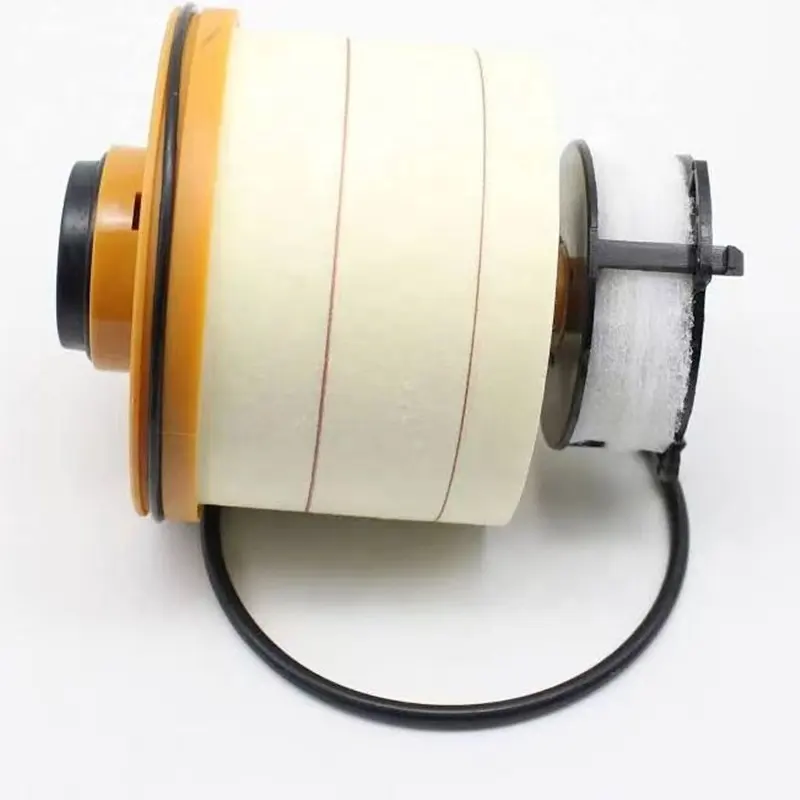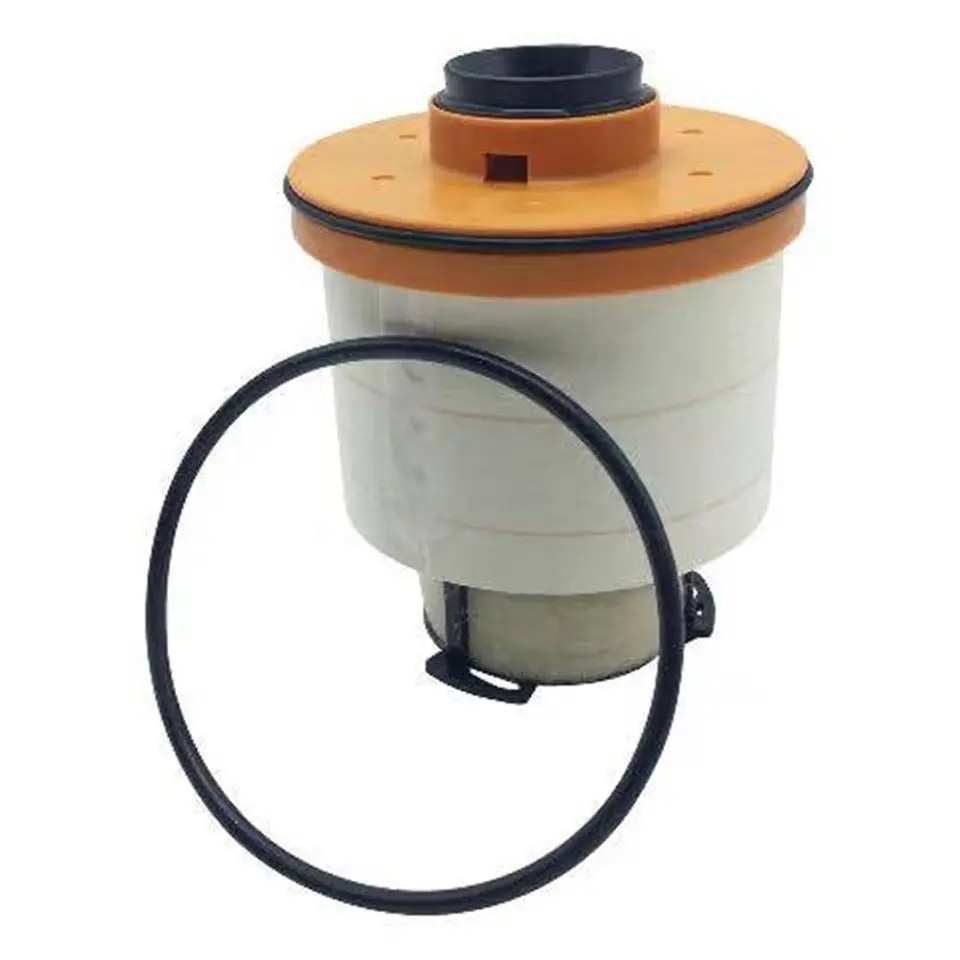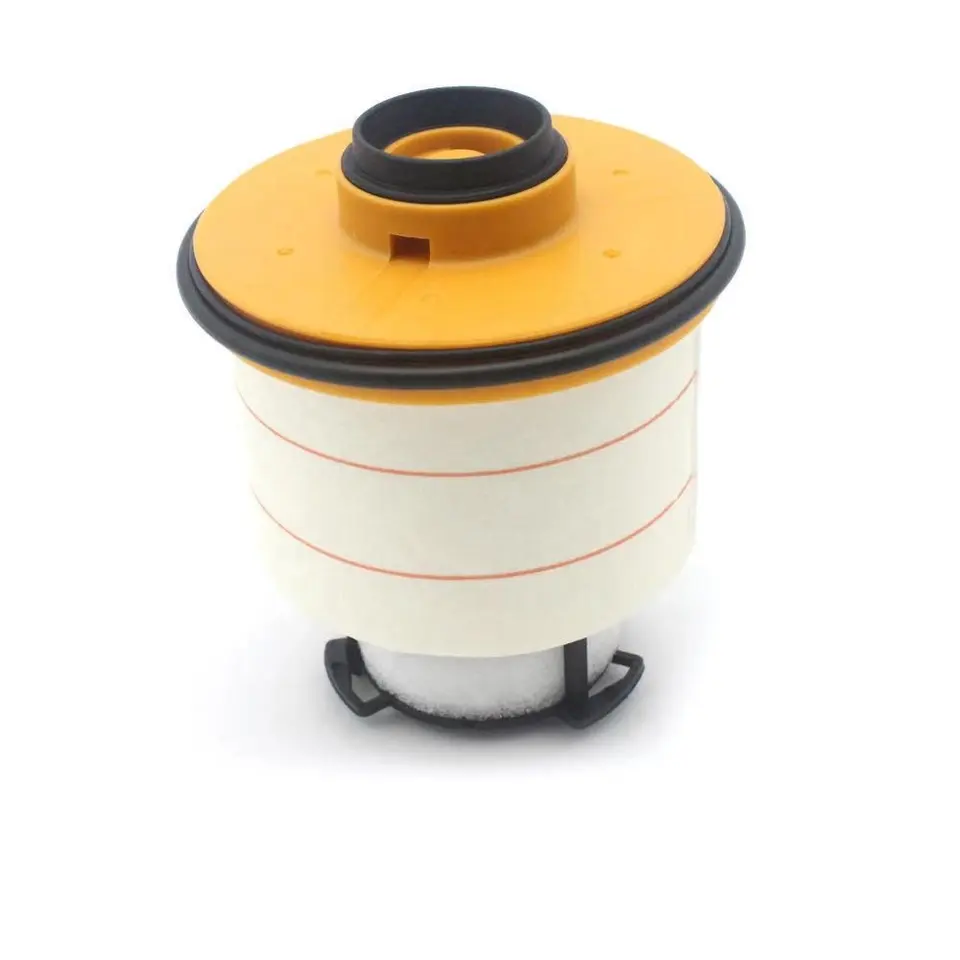Jul . 28, 2025 09:01 Back to list
High-Performance Automobile Fuel Filter for Clean Engine Power
As the automotive sector evolves towards higher efficiency and lower emissions, the quality and design of the automobile fuel filter play a pivotal role in engine protection and performance. This article delves into the technical evolution, specification comparison, and applied engineering of fuel oil filter systems, including aluminum fuel filters, corvette fuel filters, and spin on fuel filter types. We also analyze the automobile fuel filter product line from Antfilter, featuring the Fuel Filter Element diesel engine fuel filters 23390-0L070 23390-0L090 for HILUX, with real-world trends, expert parameters, and comparison charts.
Industry Trends in Automobile Fuel Filter Technology (2024 Update)

- Global Demand Rise: According to MarketsandMarkets, the automotive fuel filter market is expected to reach USD 4.2 billion by 2027, growing at a CAGR of 4.6% (2022-2027).
- Shift to High-Efficiency Materials: Increasing use of aluminum fuel filter housings and synthetic filter media for longer service life and lower weight.
- Stricter Emission Standards: ISO 4020-compliant filter element designs to meet Euro 6/7, EPA, and China VI/VII emission standards.
- Integration with Smart Systems: Sensors and IoT connectivity for predictive maintenance in high-end vehicles.
- OEM Customization: Surge in demand for custom-engineered filters (e.g., corvette fuel filter, heavy-duty diesel applications, and spin on fuel filter retrofits).
Technical Specification Comparison: Automobile Fuel Filter and Industry Benchmarks
| Model | Filter Media | Efficiency (μm) | Flow Rate (L/h) | Service Life (km) | Operating Pressure (MPa) | Outer Shell Material | Standard Certification |
|---|---|---|---|---|---|---|---|
| Antfilter 23390-0L070/0L090 | Multilayer Synthetic Fiber | ≥99%@5μm | 200-300 | 40,000-50,000 | 0.6 | Aluminum Alloy | ISO 4020, ISO/TS 16949 |
| WIX 33481 | Cellulose, Synthetic Blend | ≥98%@8μm | 220 | 30,000 | 0.5 | Steel | ISO 5011 |
| Bosch 0450905286 | Microglass/Synthetic | ≥99%@7μm | 290 | 40,000 | 0.6 | Aluminum | ISO/TS 16949 |
| Fram G10000 | Cellulose | ≥97%@9μm | 210 | 25,000 | 0.4 | Steel | SAE J905 |
Product Showcase: Fuel Filter Element Diesel Engine Fuel Filters 23390-0L070 23390-0L090 for HILUX
Discover the latest automobile fuel filter innovation:
Fuel Filter Element diesel engine fuel filters 23390-0L070 23390-0L090 for HILUX
- Reference OE numbers: 23390-0L070, 23390-0L090
- Media Composition: Japanese-imported synthetic microfibers
- Micron Rating: ≥99%@5μm (ISO 4020 verified)
- Flow Rate: 230-320 L/h (optimized for diesel engines)
- Shell Material: High-strength aluminum alloy (anti-corrosive anodizing)
- Service Life: Up to 50,000 km; tested per ISO/TS 16949
- Pressure Resistance: Up to 0.7 MPa, extreme vibration tolerance

Manufacturing Process Flow: Automobile Fuel Filter
Step-by-Step Diagram:

- Raw Material Selection – Only high-purity aluminum alloy and ISO-certified media fibers pass initial QC.
- Housing Formation – Aluminum fuel filter bodies are produced via precision casting, CNC finish machining, and chemical anodizing for corrosion protection.
- Filter Media Pleating – Multi-layered synthetic fiber sheets are accordion-pleated for maximized surface area and fit ISO 4020 micron retention curves.
- Element Assembly – Robotic gluing, deep draw insertion, and ultrasonic welding ensure leak-free fit and uniform flow. Endcaps are typically EPDM or NBR for superior diesel resistance.
- Performance Testing – 100% in-line testing according to ISO/TS 16949: pressure pulse, flow, and particle retention (e.g., 99% ≥5μm per ISO 4548).
- Final Inspection & Marking – Automated vision systems check completeness, QR coding for traceability.
- Packing & Logistics – Vacuum-sealed and boxed per customer spec, suited for export and climate extremes.
Industry certifications: ISO/TS 16949, ISO 4020, ANSI/SAE J905. Materials and process rigor ensure top-tier fuel filtration even under extreme industrial or off-road conditions.
Application Scenarios & Technical Advantages
- Diesel Powertrains – High-efficiency fuel oil filter protects CRDI (common rail direct injection) and HPFP (high pressure fuel pump) in modern diesel engines.
- Off-road and Heavy Duty – In pickup (Hilux), truck, agricultural and mining engines, robust pre-filtration extends injector life and reduces unexpected downtime by over 18% (Antfilter client data, 2023).
- Performance & Motorsport – Corvette fuel filter and custom high-flow units maintain
- Industrial Systems – Water treatment, petrochemical, and hydraulic plants use spin on fuel filter designs for easy changeout, anti-corrosion shell, and high differential pressure endurance (>0.7MPa burst).
Typical Application Case Studies
Case 1: Toyota HILUX Fleet Optimization (Asia-Pacific, 2023)
- Challenge: High particulate contamination in local diesel led to injector clogging every 20,000 km.
- Solution: Switch to automobile fuel filter with ISO 4020-certified filters.
- Result: Service interval extended to over 42,000 km; maintenance incidents cut by 60%. Customer feedback emphasized fuel savings (~3%) due to restored injector spray.
Case 2: Industrial Water Plant (Petrochemical Pipeline, 2022)
- Scenario: Needed robust spin on fuel filter system for corrosive environments and easy maintenance.
- Implementation: Antfilter custom-designed aluminum housing w/ synthetic media (service life > 12 months, ISO salt-fog tested for 720h).
- Outcome: Annual filter change frequency dropped by 40%; reduced unscheduled shutdowns by 27% (Source: operator survey 2022).
Authoritativeness & Partnership
- Antfilter: Over 17 years in OEM/ODM automobile fuel filter supply—global partners include Toyota, Hyundai, Sinopec, and John Deere.
- All products independently tested at TUV Rheinland and SGS; ISO/TS 16949, ISO 4020, and ANSI/SAE J905-certification.
- Annual capacity >2.3 million units, 3-day sample delivery for custom filters (reference: automobile fuel filter).
- Clients supported with live video QA, barcode tracking, and bilingual technical manuals.
Customization & Service Promise
- Customized Filter Engineering: Options for filter media (cellulose, glass fiber, hybrid), micron rating (3μm–15μm), shape (spin-on, cartridge, inline), and housing (aluminum, 304SS, HDPE).
- Process: Drawings → Prototype (CNC/3D print) → Lab Test (ISO 4020/4548) → Field Pilot → Mass Production.
- Delivery: 3-5 days for samples; mass order 18-25 workdays, by air/sea/express per client need.
- Warranty: 24 months/60,000 km, full replacement for verified defects.
- Customer Support: 24/7 engineering hotline; support@antfilter.com.
Frequently Asked Questions (Automobile Fuel Filter & Technical Terms)
- 1. What is the main function of an automobile fuel filter?
- The filter's primary job is to remove particulate contaminants, water, and dissolved gums from fuel before it enters the engine, reducing wear to CRDI, HPFP, and injectors.
- 2. What are the common filter media used in fuel oil filters?
- Synthetic microfibers, cellulose, glass fiber, and advanced hybrid layered structures. Synthetic blends offer superior water separation and dirt-holding, as used by Fuel Filter Element 23390-0L070.
- 3. Why choose an aluminum fuel filter over steel or plastic?
- Aluminum provides high strength-to-weight ratio, superior corrosion resistance (especially for bio-diesel blends), and better heat dissipation, ideal for both automotive and industrial setups.
- 4. What does “spin on fuel filter” refer to?
- A quick-change fuel filter type with integrated shell and element, using screw threads for mounting. Facilitates tool-free servicing in field conditions.
- 5. Which installation standards or test methods apply?
- Key standards: ISO 4020 for lab testing, ISO/TS 16949 for process control, ANSI/SAE J905/ISO 4548 for pressure/durability.
- 6. How can I determine when to replace a fuel filter?
- Monitor pressure differential sensors (ΔP), follow OEM mileage/time intervals, or inspect for symptoms like power loss or hard start (especially in diesel and high-performance vehicles like Corvette models).
- 7. What is meant by “micron rating” and why is ≥99%@5μm significant?
- Micron rating defines the smallest particle size the filter efficiently captures. A 99%@5μm filter removes 99% of particles ≥5 microns—critical for modern tight-tolerance fuel systems.
Conclusion
Automobile fuel filter technology sits at the intersection of advanced materials, evolving engine requirements, and industry regulations. Through continuous R&D, top brands—exemplified by Fuel Filter Element diesel engine fuel filters 23390-0L070 23390-0L090—achieve high efficiency, extended life, and robust industrial applicability.
For further reading, see in-depth discussions and field data at:
- SAE Technical Papers: Modern Diesel Fuel Injection Filtration
- Bob Is The Oil Guy – Fuel Filter User Reports
- Journal of Cleaner Production: Emissions & Fuel Filtration Impact Analysis
This is the last article
-
High-Performance Automobile Fuel Filter for Clean Engine Power
NewsJul.28,2025
-
Reliable China Fuel Filter Supplier for Automotive & Industrial Needs
NewsJul.27,2025
-
High Quality China Brand Car Air Filter & Auto Filters Supplier
NewsJul.26,2025
-
High-Quality Fuel Filter for Cars – Durable, Efficient Spin On Fuel Oil Filter
NewsJul.25,2025
-
China Cabin Filter Supplier – Premium Auto Air & Oil Filters Exporter
NewsJul.24,2025
-
Premium Antiskid Tire for Safe Driving & High Performance Filters
NewsJul.23,2025


